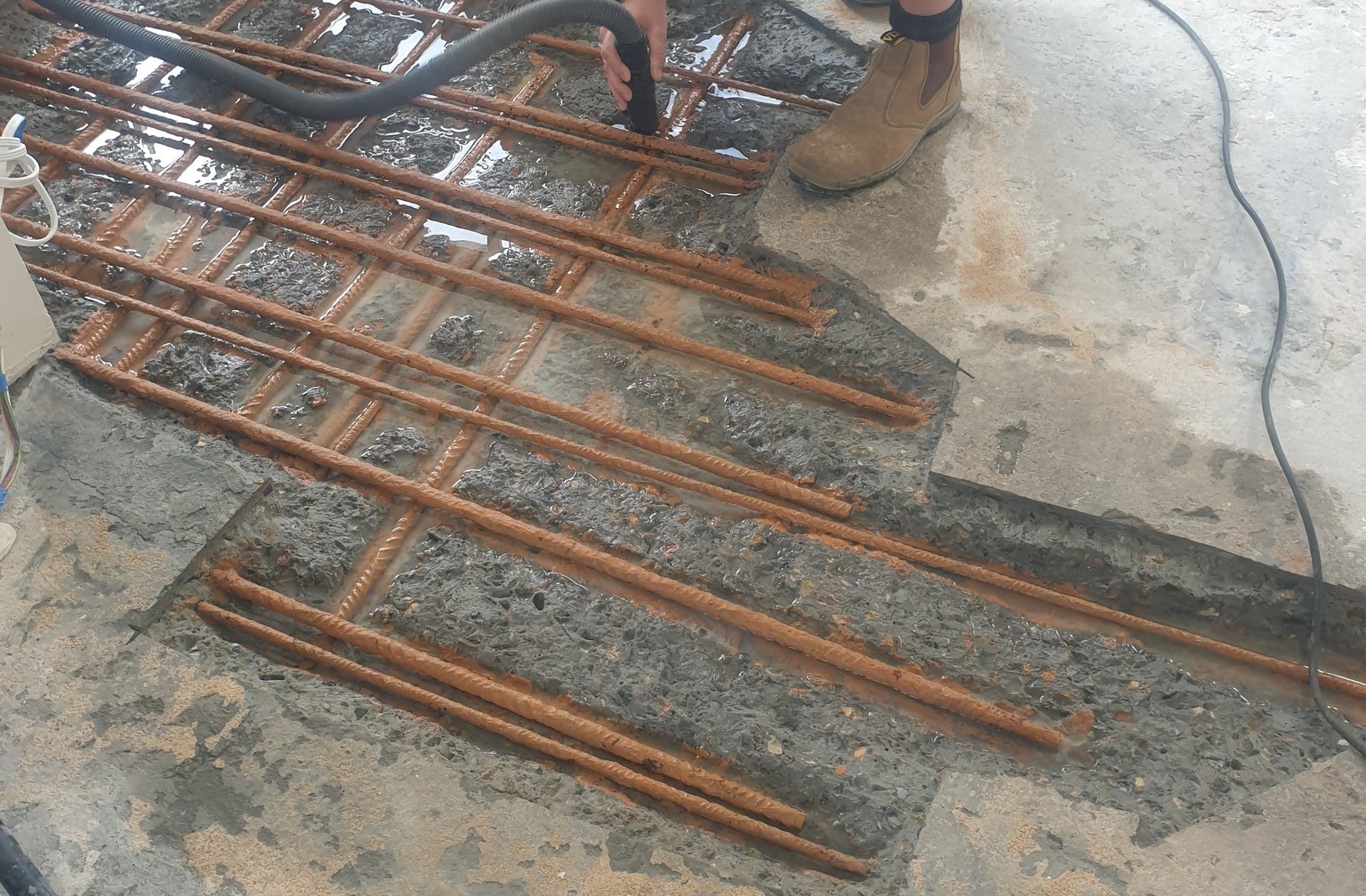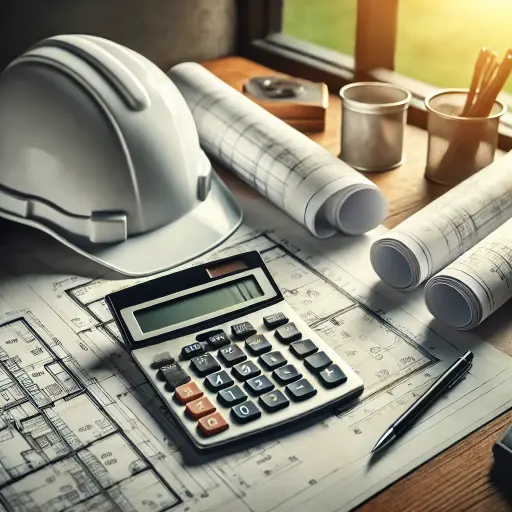Construction defects can compromise a building’s safety, durability, and compliance with industry standards. When issues arise, remedial works & defect solutions are essential for fixing faults, preventing further damage, and ensuring project success.
From structural failures to waterproofing issues, defects can result from poor workmanship, material failures, or design errors. Addressing these issues through effective remedial works helps maintain construction quality and long-term integrity.
Understanding how to effectively manage and prevent defects is essential for builders, contractors, property developers, and homeowners alike. In this guide, we will break down:
✔ What remedial works & defect solutions entail
✔ The most common types of construction defects
✔ Best practices for identifying, managing, and preventing defects
✔ How proper cost estimation can streamline remedial work
By taking a proactive approach to defect management, construction professionals can save time, reduce costs, and enhance project outcomes. Whether you’re dealing with foundation issues, material deterioration, or code violations, having a structured plan for remedial works & defect solutions is crucial to ensuring long-term structural integrity and client satisfaction.
What Are Remedial Works & Defect Solutions?
Construction defects can arise at any stage of a project, from design to execution. When issues occur, remedial works & defect solutions help restore the structure’s integrity, safety, and compliance with regulations. These corrective measures ensure that defects do not compromise a building’s performance, longevity, or aesthetic appeal.
Understanding Remedial Works in Construction
Remedial works refer to the corrective actions taken to fix defects or faults in a building. These could stem from poor workmanship, material failures, or external factors such as environmental damage. The goal of remedial works is to restore a structure to its intended condition while meeting all building codes and safety standards.
Some remedial works involve minor adjustments, like repairing surface cracks or resealing water leaks, while others require more extensive repairs, such as reinforcing foundations or replacing defective materials. Addressing issues early can prevent them from escalating into more costly problems later.
How Construction Defects Lead to Remedial Works & Defect Solutions
A construction defect is any flaw that affects the structural integrity, safety, or functionality of a building. These defects often result from mistakes in the planning, design, or execution stages. In many cases, they require immediate attention to prevent further deterioration, safety hazards, or legal liabilities.
Common defects that require remedial works include:
- Structural instability caused by miscalculations in load-bearing components
- Water ingress due to inadequate waterproofing or drainage
- Cracks and settlement issues from poor soil compaction or foundation errors
- Non-compliance with building regulations, requiring modifications to meet legal standards
By implementing remedial works & defect solutions, construction professionals can rectify these problems and ensure that the building meets industry standards and client expectations.
Why Are Remedial Works & Defect Solutions Essential?
Ignoring construction defects can lead to serious consequences, including costly rework, project delays, and safety hazards. Investing in proper defect solutions helps maintain the overall value and durability of a structure. Builders, contractors, and property developers who prioritize remedial works ensure compliance, reduce long-term maintenance costs, and uphold their reputation in the industry.
Remedial works & defect solutions play a critical role in construction defect management. By understanding how defects occur and addressing them through proper repair strategies, professionals can prevent financial losses and ensure successful project completion.
Common Causes of Defects Requiring Remedial Works
Construction defects can arise from multiple factors, impacting a project’s quality, safety, and longevity. When issues are not identified early, they often require remedial works & defect solutions to prevent further damage and ensure compliance. Understanding the common causes of defects helps professionals take proactive measures to minimize risks and maintain construction standards.
Poor Workmanship in Construction Defects & Remedial Works
One of the leading causes of construction defects is poor workmanship. When tasks are performed without proper skill, attention to detail, or adherence to guidelines, the results can be substandard. Common workmanship-related defects include:
- Uneven flooring or misaligned structures due to improper installation
- Weak concrete mixes leading to cracks and instability
- Inadequate waterproofing, resulting in leaks and moisture problems
Remedial works & defect solutions often involve redoing faulty work, reinforcing weak structures, or replacing defective components to restore quality.
Design Errors & Engineering Mistakes
Defects can also originate from errors in architectural plans, engineering calculations, or structural design. When designs do not account for material strength, load distribution, or environmental factors, buildings may experience:
- Foundation instability due to miscalculated load-bearing requirements
- Inadequate ventilation or drainage systems leading to long-term damage
- Structural weaknesses that require modifications or reinforcements
Effective defect solutions in such cases involve reviewing designs, conducting structural assessments, and implementing corrective measures to ensure stability.
Material Failures & Substandard Products
Using poor-quality or incompatible materials can significantly impact construction integrity. Defective materials can fail prematurely, leading to costly repairs. Common material-related defects include:
- Cracking or warping in wooden components due to improper treatment
- Steel corrosion from exposure to moisture and harsh environmental conditions
- Brittle concrete or masonry deterioration due to low-quality mixes
Remedial works & defect solutions often include material replacement, protective treatments, or reinforcement techniques to enhance durability.
Environmental Factors & Natural Wear
Construction projects are exposed to environmental conditions that can contribute to defects over time. These factors include:
- Excessive moisture leading to mold growth or structural decay
- Temperature fluctuations causing expansion and contraction issues
- Soil movement affecting foundation stability
To mitigate these risks, professionals incorporate weather-resistant materials, proper drainage systems, and preventative maintenance strategies as part of remedial works.
Regulatory Non-Compliance & Code Violations
Failure to adhere to building regulations and industry standards can result in serious defects that compromise safety and functionality. Common violations include:
- Insufficient fireproofing measures in high-risk structures
- Non-compliant electrical or plumbing installations
- Inadequate seismic reinforcements in earthquake-prone areas
Defect solutions in such cases often involve bringing projects up to code by modifying or replacing non-compliant elements.
The Need for Proactive Defect Prevention
While remedial works & defect solutions are essential for fixing construction issues, prevention is always the best approach. By enforcing strict quality control, using certified materials, and ensuring skilled labor, builders can reduce the likelihood of defects and costly repairs.
Types of Remedial Works & Defect Solutions in Building Projects
Remedial works & defect solutions vary depending on the nature and severity of construction defects. Some issues require minor adjustments, while others demand extensive repairs or structural reinforcements. Addressing defects promptly ensures that buildings remain safe, functional, and compliant with industry regulations.
Structural Defects in Remedial Works & Defect Solutions
Structural defects are among the most critical issues in construction. If left unresolved, they can compromise a building’s integrity, leading to long-term safety risks and financial losses. Common structural defects that require remedial works & defect solutions include:
- Foundation settlement – Caused by poor soil compaction or water infiltration
- Cracked load-bearing walls – Resulting from excessive stress or material failure
- Misaligned beams or columns – Due to design miscalculations or poor installation
Defect solutions for structural issues often involve underpinning foundations, reinforcing weak sections with steel or concrete, and conducting structural assessments to prevent recurrence.
Waterproofing & Moisture Control
Water ingress is a common issue in construction that can lead to mold growth, material deterioration, and indoor air quality problems. Remedial works for moisture-related defects include:
- Sealing leaks in roofs, basements, and walls
- Installing proper drainage systems to prevent water buildup
- Applying waterproof coatings to protect materials from moisture damage
By implementing the right defect solutions, construction professionals can prevent costly water-related damage and extend the lifespan of a structure.
Fire Safety & Compliance Fixes
Fire safety is a non-negotiable aspect of construction. Buildings that do not meet fire safety standards require immediate remedial works & defect solutions to ensure compliance. Some key corrective actions include:
- Upgrading fire-resistant materials in walls, ceilings, and floors
- Installing or replacing faulty fire suppression systems
- Ensuring proper escape routes and signage in commercial buildings
These solutions not only improve safety but also help projects adhere to local building codes and fire regulations.
Aesthetic & Finishing Defects in Remedial Works & Defect Solutions
While structural and safety concerns take priority, aesthetic defects can also impact a project’s value and appeal. Remedial works in this category include:
- Fixing uneven flooring due to improper installation
- Repainting or re-plastering surfaces with visible cracks or discoloration
- Aligning mispositioned tiles or wall panels for a polished finish
Although these issues may not pose immediate safety risks, they are essential for maintaining high-quality construction standards and ensuring client satisfaction.
Non-Compliance with Building Regulations
Regulatory violations can delay project approvals, lead to fines, or require expensive modifications. Common non-compliance issues that require remedial works & defect solutions include:
- Improper electrical or plumbing installations
- Failure to meet energy efficiency standards
- Insufficient accessibility features in public buildings
To resolve such issues, professionals must review project plans, make necessary adjustments, and conduct inspections to ensure compliance.
Why Addressing Construction Defects Matters
No construction project is immune to defects, but prompt remedial works & defect solutions can:
✔ Prevent expensive legal disputes
✔ Reduce long-term maintenance costs
✔ Improve occupant safety and comfort
✔ Maintain project timelines and budgets
By understanding the different types of defect solutions, construction professionals can take proactive measures to minimize risks and enhance project success.
The Impact of Construction Defects on Projects
Construction defects can have serious consequences if not addressed through remedial works & defect solutions. Beyond causing structural issues, defects can lead to financial losses, project delays, and legal disputes. Understanding the impact of defects highlights the importance of proactive defect management in construction.
Delays and Cost Overruns
Unresolved defects often result in unexpected project delays. When construction teams must pause work to address issues, it disrupts schedules and increases costs. Rework, additional labor, and extended material usage all contribute to budget overruns. In some cases, defects found late in the project can require large-scale demolition or modifications, further escalating expenses.
Safety Risks and Liability Concerns
Defects in structural elements, electrical systems, or fire safety components pose risks to both workers and occupants. Structural failures, electrical faults, or water ingress can create hazardous conditions, leading to injuries, health issues, or even building collapses. When safety is compromised, construction companies face potential legal action, increased insurance costs, and damage to their reputation.
Legal & Contractual Issues in Remedial Works & Defect Solutions
Failure to meet contractual obligations due to defects can result in legal disputes between developers, contractors, and clients. If remedial works & defect solutions are not properly implemented, disputes may arise regarding project responsibility and liability. Non-compliance with building codes or regulatory requirements can also lead to penalties or litigation, further delaying project completion.
Client Dissatisfaction and Reputation Damage
Construction defects can negatively impact client trust and satisfaction. Poor workmanship, visible structural flaws, or ongoing maintenance issues after project completion can lead to disputes, negative reviews, and loss of future business. Companies that consistently address defects and apply proper defect solutions build stronger industry reputations and retain clients.
Increased Long-Term Maintenance Costs
Unresolved defects may not cause immediate failure, but they often lead to increased maintenance costs over time. Water damage, material deterioration, and foundational shifts can require ongoing repairs that add financial strain. Implementing remedial works early prevents defects from worsening and helps maintain the long-term integrity of a structure.
Why Proactive Defect Management Matters
The consequences of construction defects extend far beyond the initial repair costs. Proactively applying remedial works & defect solutions minimizes risk, ensures compliance, and helps maintain project timelines and budgets. A strong defect management strategy not only prevents costly rework but also improves safety and enhances client confidence in construction quality.
How to Manage and Prevent Defects in Construction
Managing construction defects effectively requires a combination of proactive planning, quality control measures, and proper remedial works & defect solutions. While defects can arise at any stage of a project, implementing preventive strategies reduces their occurrence and minimizes costly rework.
Quality Control in Remedial Works & Defect Solutions
Regular inspections help identify potential defects early, preventing minor issues from turning into major structural or compliance problems. Construction teams should conduct:
- Pre-construction assessments to verify material quality and structural plans
- Ongoing site inspections to detect workmanship errors during construction
- Post-construction evaluations to confirm compliance with building codes and client expectations
By spotting defects early, construction professionals can apply remedial works & defect solutions before they escalate into costly repairs.
Use High-Quality Materials and Skilled Labor
Many construction defects result from poor-quality materials or unskilled labor. Sourcing materials from reputable suppliers and hiring experienced contractors ensures higher construction standards. Key practices include:
- Ensuring all materials meet industry and safety regulations
- Verifying supplier certifications and testing materials for durability
- Training workers in best practices for installation and defect prevention
Investing in quality materials and skilled workmanship reduces the likelihood of defects and the need for extensive remedial works.
Follow Industry Standards and Building Codes
Regulatory non-compliance is a leading cause of defects in construction. Ignoring building codes or cutting corners in project execution can lead to legal disputes, failed inspections, and expensive corrective actions. To prevent non-compliance, construction professionals should:
- Stay updated on local and national building regulations
- Work with certified inspectors to ensure adherence to safety and performance standards
- Document all processes to provide proof of compliance during inspections
Implementing remedial works & defect solutions before regulatory reviews can help avoid costly delays and penalties.
Implement a Defect Resolution Process
Even with preventive measures, some defects may still occur. Having a structured approach to defect resolution ensures that issues are addressed efficiently. A well-managed defect resolution process includes:
- Defect Identification – Conduct assessments to diagnose issues accurately
- Root Cause Analysis – Determine if the defect is due to design flaws, materials, or workmanship
- Implementation of Remedial Works – Apply appropriate defect solutions based on the severity of the issue
- Final Inspection and Documentation – Ensure the defect is resolved and meets compliance standards
By following a systematic process, construction teams can minimize disruptions and complete projects successfully.
Budget Planning for Remedial Works & Defect Solutions
Unexpected defects can impact project budgets if no financial reserves are in place. Construction professionals should allocate contingency funds to handle potential defect-related expenses. This budget helps cover:
- Material replacements and rework costs
- Specialist consultations for complex defect resolutions
- Emergency repairs to prevent further structural damage
Having a financial plan for remedial works & defect solutions ensures that defects do not derail project timelines or profitability.
Why Proactive Defect Management Saves Time and Money
Preventing and managing defects effectively reduces the need for expensive repairs, legal disputes, and client dissatisfaction. By integrating quality control, skilled labor, compliance measures, and a structured resolution process, construction professionals can maintain high project standards while avoiding costly mistakes.
Resolve Construction Defects with Expert Cost Planning
Construction defects are inevitable, but with the right approach, they don’t have to lead to costly delays or structural failures. Remedial works & defect solutions play a crucial role in maintaining project integrity, ensuring compliance, and preventing long-term maintenance issues.
By understanding the causes of defects, the types of remedial works available, and best practices for defect prevention, construction professionals can take proactive steps to protect their projects. Quality inspections, skilled labor, and proper material selection all contribute to reducing defects and minimizing financial risks.
At Matrix Estimating, we provide expert cost assessments for remedial works, helping builders, contractors, and developers manage defect-related expenses with precision. Whether you need a cost breakdown for a structural repair, waterproofing solution, or compliance correction, our team delivers reliable estimates to keep your project on track.
Get Expert Guidance on Remedial Works & Defect Solutions
If you’re dealing with construction defects and need a clear plan for resolution, Matrix Estimating is here to help. Our accurate cost assessments ensure that you make informed financial decisions while applying effective defect solutions.
📌 Don’t let defects disrupt your project. Get a professional estimate today.













